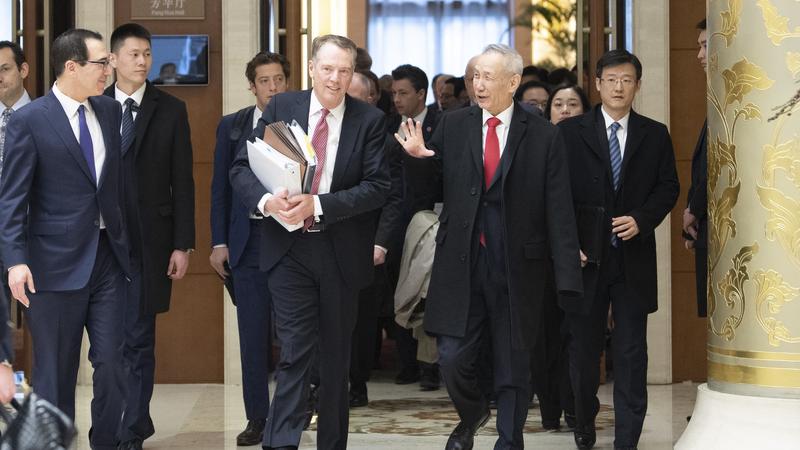
Financial Times opines that although investors have become increasingly optimistic about the US-China trade negotiations, there are many "structural issues" concerning the Chinese economic model still to be solved. Recent reports suggest that China has made a dramatic proposal to address the central issue of imbalanced trade. This would eliminate entirely its bilateral trade surplus with America within six years...Although fraught with difficulties, a new trade agreement to restore peace between the US and China by focusing on higher US exports as the main vehicle to close the bilateral imbalance would probably be better than a tariff war, for both global demand and supply chains. But the negotiators are stuck in a "second best" world. An export purchase plan would be hard to implement and could create problems elsewhere in the global trade and financial system. A rising dollar could undermine the whole plan. The "first best" system would involve global free trade and flexible exchange rates on a multilateral basis. But that does not appear to be on the agenda, while President "I happen to like tariffs" Trump remains at the helm.
CNBC reports that the United States is lagging behind China in promoting its 5G technologies across the world, with officials only just "waking up" to its potential, a former U.S. national security advisor told CNBC Sunday. "In the marketing of it we are behind," General James Jones — who served as an advisor to former President Barack Obama and as supreme allied commander of NATO forces in Europe during George W. Bush's presidency — told CNBC's Hadley Gamble. Speaking at the Munich Security Conference, he said that subsidies from the Chinese government had allowed the Asian nation to get ahead and produce technologies that were cheaper. Superfast 5G mobile internet is expected to revolutionize the digital economy by enabling new technologies such as self-driving cars and the Internet of Things (IoT). Jones said that 5G would be the "most disruptive technology that's going to come our way probably in this century."
- 2019-02-15 China and US will continue high-stakes trade talks in Washington next week
- 2019-02-14 Top U.S. trade envoys to meet China's Xi, no decision on deadline extension
- 2019-02-13 Administration Readies Order to Keep China Out of Wireless Networks
- 2019-02-12 China, U.S. Seek to Narrow Gap on Trade for Trump, Xi to Close at a Summit
- 2019-02-11 Trump officials considering Mar-a-Lago for next meeting with China's Xi: report
- 2019-02-10 White House discussing possible trade summit with China at Mar-a-Lago: report
- 2019-02-01 Trump plans to meet Chinese leader Xi Jinping to resolve trade dispute
- 2019-01-31 Trump Says No Final China Trade Deal Until He Meets With Xi
- 2019-01-30 Critical China trade talks open amid tough U.S. action against Huawei
- 2019-01-29 China slams US over 'unreasonable crackdown' on Huawei
- CNBC Asia markets set to gain as US-China trade talks move to Washington
- FT China to crack down on abuses by local 'bad loan' banks
- FT 'Difficult years' for Baidu as China's internet goes mobile
- Reuters China's ICBC wins approval to set up wealth management unit
- Reuters China to lure foreign investment in state giants: regulator
- Bloomberg Hong Kong's Growth Halved in Fourth Quarter as Trade War Hit
- www.straitstimes.com China's top diplomat Yang Jiechi hopes US implements consensus reached by both countries ...
- Reuters US President Trump receives update on China trade talks
- Forbes Dear China, Get Ready For 25% Tariffs
- Fox News Trump should 'just say no' to China trade deal
- Forbes China's Top Problem Isn't The Trade War
- The Hill The US must continue to invest in artificial intelligence to compete with China
- Fox News Trump's artificial intelligence executive order will ensure America doesn't lose the AI race to China
- nationalinterest.org The Little-Known Security Gaps In China's Belt and Road Initiative
